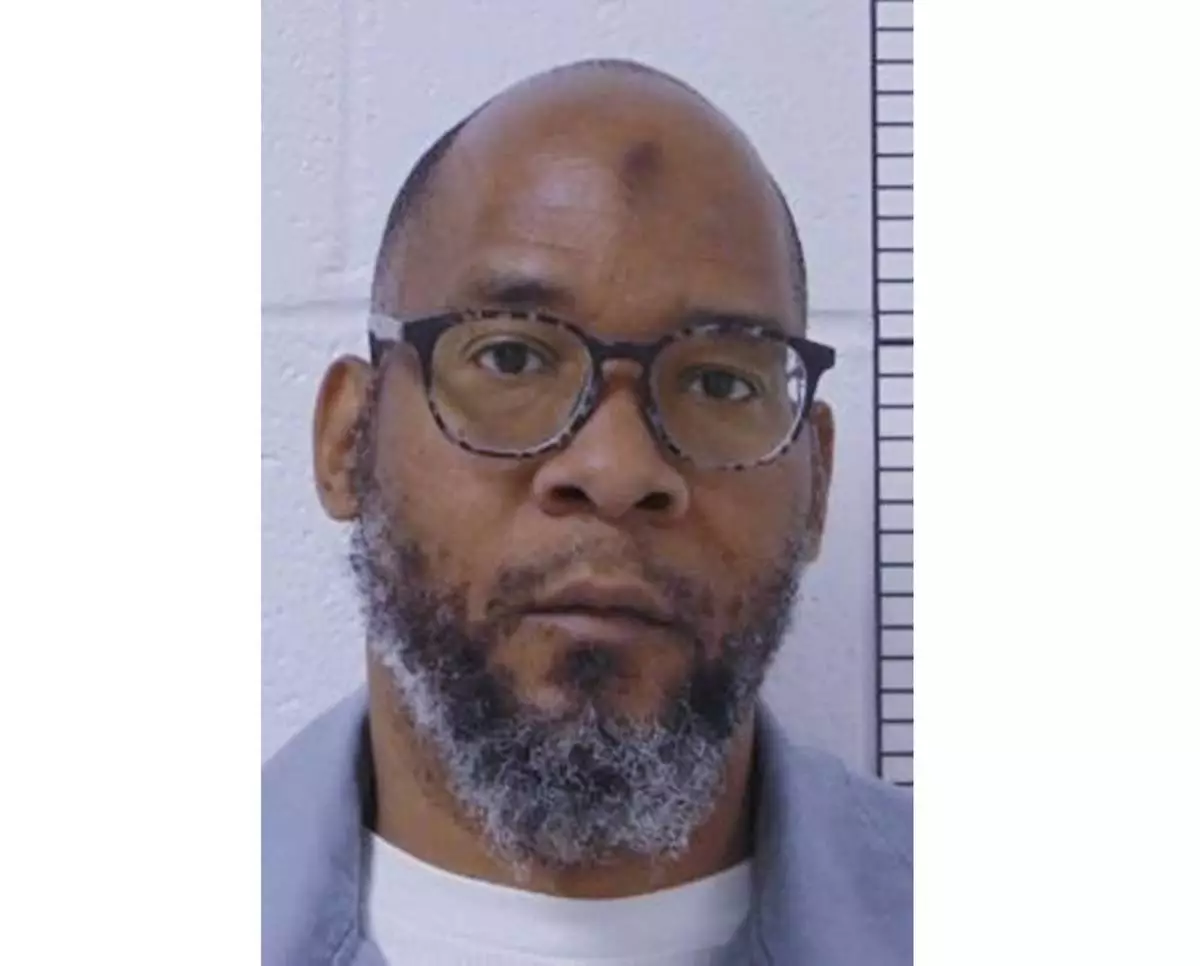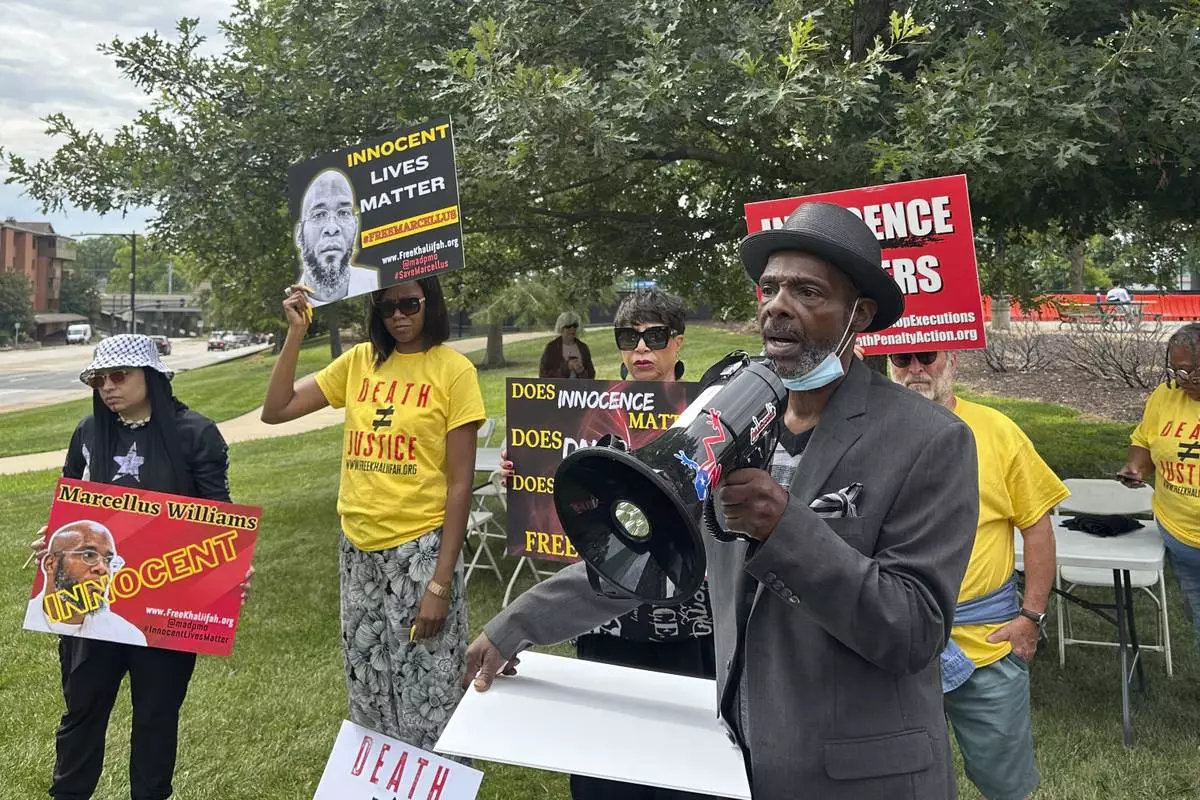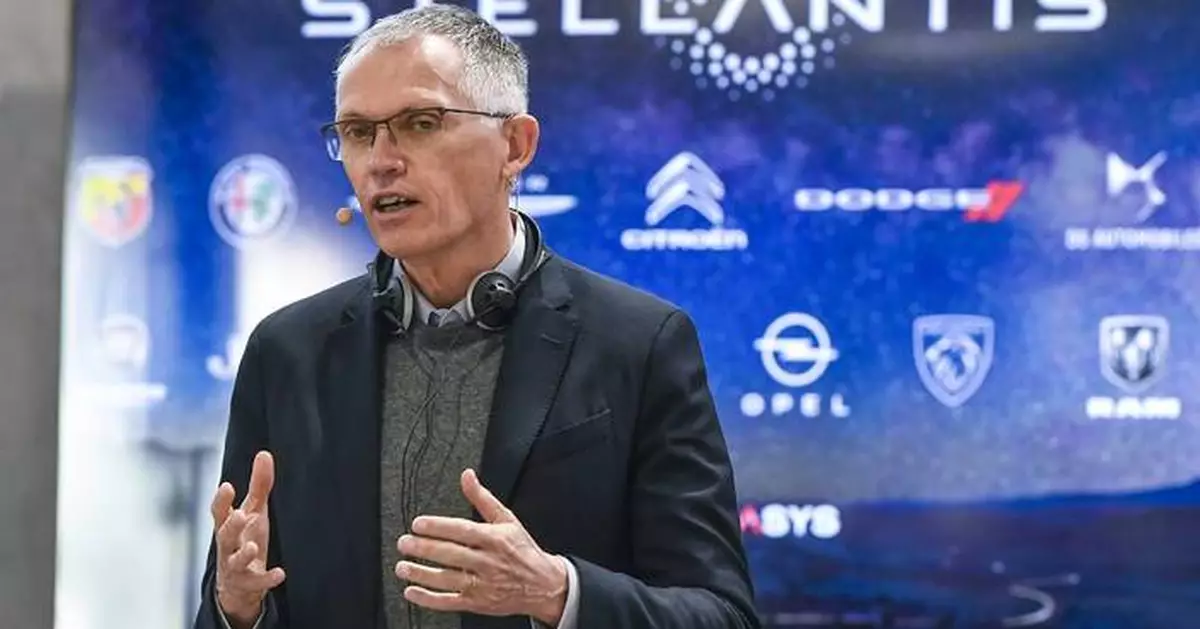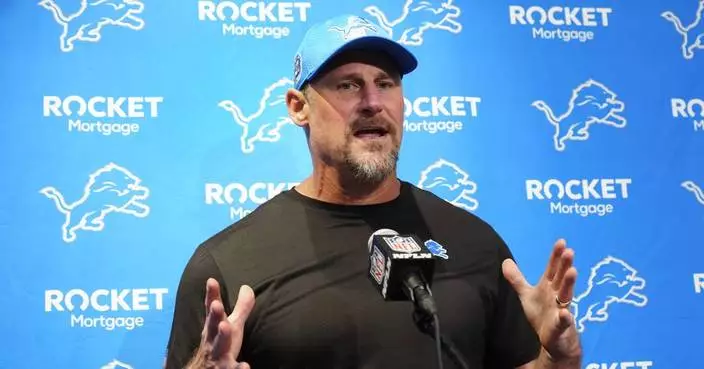DETROIT (AP) — Struggling Jeep and Ram maker Stellantis is looking for a CEO to succeed Carlos Tavares, but the company says it's just part of a normal leadership succession plan.
Tavares has been under fire from U.S. dealers and the United Auto Workers union after a dismal first-half financial performance when the company was caught off guard with too much high-priced inventory on dealer lots.
As head of PSA Peugeot, Tavares took control of the Netherlands-based company in January of 2021 when it merged with Fiat Chrysler Automobiles. Its North American operations had been the company's main source of profits, but have struggled this year amid larger market changes.
In a statement Monday, Stellantis said Tavares' five-year contract is a little over a year from its expiration date in 2026.
“It is normal for a board to look into the subject with the necessary anticipation given the importance of the position, without this having an impact on future discussions,” the statement said.
The company added that it's possible Tavares will stay on longer.
But Erik Gordon, a University of Michigan business and law professor, said the company's confirmation of the search likely means that the board has reached a deal for Tavares to leave.
“I think they recognize that it's best for the company to have a new CEO,” said Gordon, who has advised corporations on leadership succession plans. “Stellantis is taking a lot of hits within the U.S.”
Companies, he said, try to change leaders in a peaceful and organized way. “They don't want it to look like chaos, they don't want it to look like panic. They want it to look like this is the normal, responsible way we do things.”
Tavares has been trying to cut costs, delaying some factory openings, laying off union workers and offering buyouts to salaried employees.
The company reported that first-half net profits were down 48% compared with the same period last year. First-half sales in the U.S. were down nearly 16%, even though overall new vehicle sales rose 2.4%.
Growing dealer inventory and high prices brought a rebuke from the head of the U.S. dealers council, who called on the company to boost discounts to move vehicles off of their lots.
When the company told the auto workers union that it would delay plans to reopen a factory and build a new electric vehicle battery plant in Belvidere, Illinois, UAW President Shawn Fain called for Tavares to be fired. The company agreed to the plans in a new contract with the UAW that was signed after a six-week strike last fall.
The union has filed grievances and threatened to strike over the delays, which the company says are necessary due to market conditions in the U.S. Fain blamed the problem on poor leadership from Tavares and said General Motors and Ford are still performing well.
The company says it intends to meet its commitment to reopen Belvidere and build the battery plant, but it needs the delays due to slowing sales.
Stellantis said it already is working with dealers to reduce inventory, and their efforts boosted sales in August.
Chief Financial Officer Natalie Knight told a Bank of America conference on Monday that the company is pleased with progress on reducing inventory on dealer lots.
In the U.S., for example, Stellantis had just over 430,000 vehicles in its inventory at the end of June. That number was reduced by 40,000 in July and August, and the company has set a target of cutting it by a total of 100,000 by the start of next year. “We’re going to continue to see reductions in September and throughout the year,” she said.
Tavares told reporters during the summer that the global auto industry is caught between consumers looking for more affordable vehicles and demands for more capital spending to develop new electric and gas-powered vehicles.
In North America, Tavares conceded that Stellantis let inventory get too high, and plans to fix that in the first half didn’t work. Sticker prices, he said, are too lofty and often send customers fleeing from showrooms early in the shopping process even though discounts are available.
Several U.S. executives, including the heads of the Jeep, Dodge and Ram brands, have left the company in recent months.
In March, the company said it would lay off 400 white-collar workers in the U.S. as it deals with the transition from combustion engines to electric vehicles.
In November of 2023 the company made buyout and early retirement offers to 6,400 nonunion salaried workers. It has not said how many took the offers.
The CEO search was first reported Monday by Bloomberg News.

FILE - A Stellantis logo is shown at the North American International Auto Show, Sept. 13, 2023, in Detroit. (AP Photo/Paul Sancya, File)

FILE - Stellantis CEO Carlos Tavares speaks during a news conference following a meeting with unions, March 31, 2022, in Turin, Italy. (Fabio Ferrari/LaPresse via AP, File)
JEFFERSON CITY, Mo. (AP) — A Missouri man seeking to avoid execution suffered dual setbacks Monday as the state’s top court and governor each rejected requests to cancel his scheduled lethal injection.
Marcellus Williams is set to be executed at 6 p.m. Tuesday for the 1998 murder of Lisha Gayle, a social worker and former newspaper reporter who was repeatedly stabbed during a burglary of her suburban St. Louis home.
Missouri Gov. Mike Parson, a Republican, on rejected Williams’ clemency request to spare him from the death penalty and instead sentence him to life in prison. The Missouri Supreme Court, almost simultaneously, also rejected a request to cancel the execution so that a lower court could make a new determination about whether a trial prosecutor wrongly excluded a potential Black juror for racial reasons.
Attorneys for Williams still have an appeal before the U.S. Supreme Court.
Williams, 55, has asserted his innocence. But his attorney did not pursue that claim Monday before the state’s highest court, instead focusing on alleged procedural errors in jury selection and the prosecution’s alleged mishandling of the murder weapon.
The state Supreme Court, in a unanimous decision, affirmed a lower court ruling rejecting Williams’ arguments.
“Despite nearly a quarter century of litigation in both state and federal courts, there is no credible evidence of actual innocence or any showing of a constitutional error undermining confidence in the original judgment,” Judge Zel Fischer wrote in the state Supreme Court ruling.
Parson said Williams received extensive legal opportunities to try to argue his innocence and accused Williams’ attorneys of trying to “muddy the waters about DNA evidence” with claims that courts have repeatedly rejected.
“Nothing from the real facts of this case have led me to believe in Mr. Williams’ innocence,” Parson said in a statement. “As such, Mr. Williams’ punishment will be carried out as ordered by the Supreme Court.”
Parson, a former sheriff, has never granted clemency in a death penalty case.
St. Louis County Prosecuting Attorney Wesley Bell has sought to set aside Williams' sentence, citing questions about his guilt. He plans to appeal the Missouri Supreme Court ruling to the U.S. Supreme Court, spokesman Chris King said.
“Even for those who disagree on the death penalty, when there is a shadow of a doubt of any defendant’s guilt, the irreversible punishment of execution should not be an option,” Bell said in a statement.
Williams's case has been championed by the Midwest Innocence Project.
“Missouri is poised to execute an innocent man, an outcome that calls into question the legitimacy of the entire criminal justice system," said Tricia Bushnell, a Midwest Innocence Project attorney.
Williams' execution would be the third in Missouri this year and the 100th since the state resumed executions in 1989.
This marks the third time Williams has faced execution. He was less than a week away from execution in January 2015 when the state Supreme Court called it off, allowing time for his attorneys to pursue additional DNA testing.
He was just hours away from being executed in August 2017 when then-Gov. Eric Greitens, a Republican, granted a stay and appointed a panel of retired judges to examine the case. But that panel never reached a conclusion.
Questions about DNA evidence also led Bell to request a hearing challenging Williams’ guilt. But days before the Aug. 21 hearing, new testing showed that the DNA evidence was spoiled because members of the prosecutor’s office touched the knife without gloves before the original trial.
With the DNA evidence unavailable, Midwest Innocence Project attorneys reached a compromise with the prosecutor’s office: Williams would enter a new, no-contest plea to first-degree murder in exchange for a new sentence of life in prison without parole.
Judge Bruce Hilton signed off on the agreement, as did Gayle’s family. But at the urging of Republican Missouri Attorney General Andrew Bailey, the Missouri Supreme Court blocked the agreement and ordered Hilton to proceed with an evidentiary hearing, which took place Aug. 28.
The prosecutor in the 2001 murder case testified at the August hearing that the trial jury was fair, even though it included just one Black member on the panel. Larner said he struck one potential Black juror partly because he looked too much like Williams — a statement which Williams’ attorneys asserted showed improper racial bias.
Hilton ruled on Sept. 12 that the first-degree murder conviction and death sentence would stand, noting that Williams' arguments all had been previously rejected. That decision was upheld Monday by the state Supreme Court.
Prosecutors at Williams’ original trial said he broke into Gayle’s home on Aug. 11, 1998, heard water running in the shower, and found a large butcher knife. Gayle, a former reporter for the St. Louis Post-Dispatch, was stabbed 43 times when she came downstairs. Her purse and her husband’s laptop computer were stolen.
Authorities said Williams stole a jacket to conceal blood on his shirt. Williams’ girlfriend asked him why he would wear a jacket on a hot day. The girlfriend said she later saw the purse and laptop in his car and that Williams sold the computer a day or two later.
Prosecutors also cited testimony from Henry Cole, who shared a cell with Williams in 1999 while Williams was jailed on unrelated charges. Cole told prosecutors Williams confessed to the killing and offered details about it.
Salter reported from O'Fallon, Missouri.

FILE - This photo provided by the Missouri Department of Corrections shows Marcellus Williams. (Missouri Department of Corrections via AP, file)

FILE - Joseph Amrine, who was exonerated two decades ago after spending years on death row, speaks at a rally to support Missouri death row inmates Marcellus Williams on Aug. 21, 2024, in Clayton, Mo. (AP Photo/Jim Salter, file)













